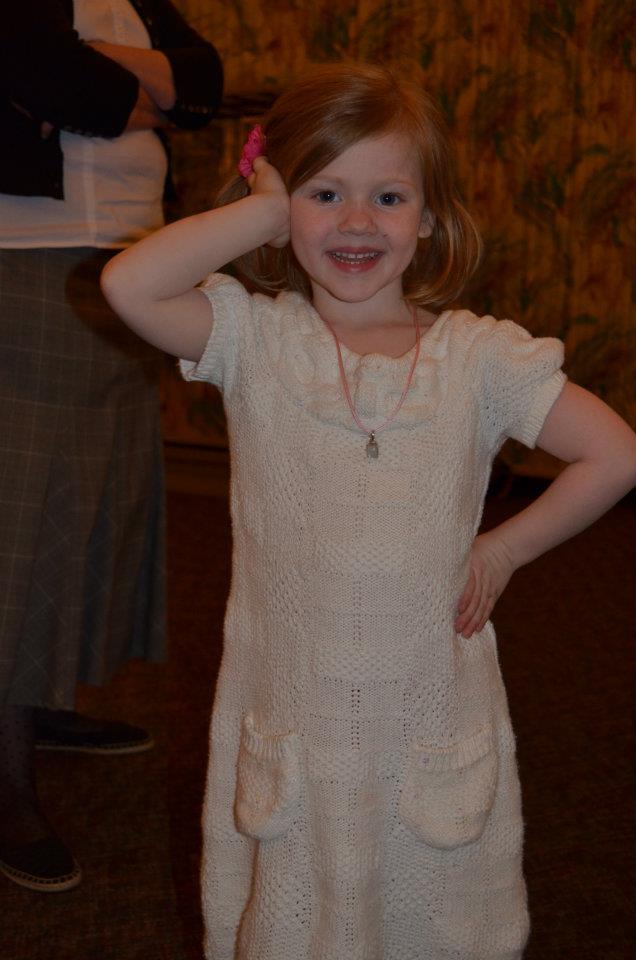 Last night, I went to our parish’s reconciliation service for advent with my wife and two children. Importantly, our two children are 5 and 2 years old. Needless to say, it’s always a challenge keeping them relatively quiet during a service (emphasis on the “relatively” part, since they are never truly quiet). This time, however, was a special challenge since we had to stand in line for the sacrament, and the service was packed since it was also serving as the First Reconciliation service for the second graders. Yet, that challenge turned out to be a grace-filled gift.
Last night, I went to our parish’s reconciliation service for advent with my wife and two children. Importantly, our two children are 5 and 2 years old. Needless to say, it’s always a challenge keeping them relatively quiet during a service (emphasis on the “relatively” part, since they are never truly quiet). This time, however, was a special challenge since we had to stand in line for the sacrament, and the service was packed since it was also serving as the First Reconciliation service for the second graders. Yet, that challenge turned out to be a grace-filled gift.
In trying to keep my five year old daughter occupied (pictured left), I let her lead our conversation and she asked me about the sacrament of reconciliation. I explained it to her as a chance to say sorry to God and for him to forgive us and help us do better. She then asked me, “What are you going say in there, daddy?” I replied, “One thing I’ll say is that I’m sorry for all of the times that I’ve gotten angry with you, and God will forgive me and help me be the best daddy I can be.” Rita Clare became very silent and just hugged me after I said that and when I looked down I saw she had tears on her cheek. I asked, “What’s wrong?” She said, “Nothing’s wrong, daddy. I’m just so happy.” Sometimes, we forget the power of saying sorry and we fail to recognize the true gift of the sacrament of reconciliation, but last night my daughter helped me remember.
One of my very first posts on “The Catholic Conversation” summarized a sociological article exploring First Reconciliation. Here is part of what I wrote:
For the children most impacted by the sacrament of reconciliation, it was a dramatic experience of purification which made them feel closer to God; Beste contrasted this understanding with the relational (horizontal) focus she observed in the textbooks and among teachers on experiencing God’s forgiveness and inspiring them to forgive others and be active peacemakers in the world. Purification and closeness to God were something that the children themselves appeared to construct in developing their own understanding of the Sacrament! And this meaning appeared rooted in the children’s intense emotional experiences of the sacrament.
This quote concerning one of the second graders’ experience of first reconciliation struck me in that original post, and I thought of it again after Rita Clare’s reaction to me last night:
Brian captured his intense emotions during the sacrament in the following way: ”I felt like ‘Hey, I’ve been forgiven. I’ll go give my penance and then don’t do the sins ever again.’ My stomach was jumping up and down at the beginning and the end. Because it was nervous then happy.” Brian was so enthusiastic as he continued to talk that I asked him to describe his least favorite part of the entire experience. Brian paused to think, looked directly into my eyes, and said, “Leaving the sacrament.”
As I noted in that earlier post, we can learn a lot from children. Thank you, Rita Clare, for helping me to relearn something important last night.
Great story Brian. I published a piece in the journal ANTIPHON a few years ago where I told a story of my son David and the importance of saying “I’m sorry.” It is a basic social grace and Christian disposition that I think sometimes has been lost. But your story gives hope as does the sacrament.